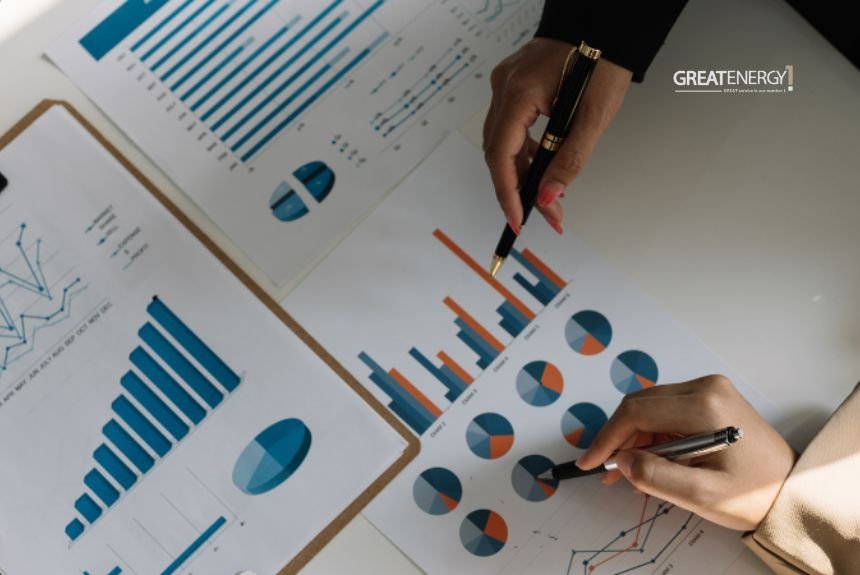Do you have an energy plan for your business? Energy is a big expense for many companies. Having a long-term energy strategy helps reduce costs and improve efficiency. It also helps your business become more sustainable.
In this article, our energy experts explain the important steps to develop a smart energy plan that works for your business now and in the future.
Why Every Business Needs a Long-Term Energy Strategy
No matter how big or small your company is, a long-term energy strategy is important. Energy can take up a large part of your monthly expenses. A good plan helps control these costs and keeps your business running smoothly.
Let’s look at why an energy strategy is useful:
1. Helps You Plan and Save Money
When you plan your energy use, you can lower costs and improve profits. Just paying less for energy is not enough. A proper plan lets you manage future energy projects, understand the benefits, and forecast savings.
2. Supports the Environment and ESG Goals
Many businesses want to reduce pollution and meet ESG (Environmental, Social, and Governance) targets. Without a clear energy plan, this is hard to achieve. You can reduce your carbon footprint by using solar power, updating building systems, or buying clean energy.
3. Get Better Electricity Supply Rates
Some businesses can get lower energy rates if they use less energy at peak times. This can happen in summer when demand is high. But to get these savings, you need to choose the right supply plan. A trusted energy broker can help you with this.
Understanding What an Energy Strategy Involves
An energy strategy is a plan to reduce or manage your energy use over time. It can include big changes, like new equipment, or small changes, like adjusting habits. The goal is to use less energy and save money.
Let’s look at how to build your own business energy plan.
Step-by-Step Guide to Building Your Energy Strategy
Step 1: Conduct a Comprehensive Energy Audit
First, you need to understand how your building uses energy. Hire an expert to check your systems like heating, cooling, pumps, lights, and windows. This is called an energy audit. It shows where energy is being wasted.
Step 2: Analyze Utility Bills and Energy Costs
Next, look at your electricity and gas bills. Do they match your actual usage? Mistakes happen often in utility bills. A utility audit can help you find errors and get refunds. It also shows how much energy your business really uses.
Step 3: Implement Energy Modeling and Identify Opportunities
Now, ask an energy expert to suggest ways to save energy. They can create models to show how much you could save with each option. These ideas may include better lighting, system upgrades, or automation. Compare the cost and benefit of each option.
Step 4: Set Realistic Energy Goals and Milestones
Make a plan with clear goals and deadlines. Start with the changes that save you the most money. Some upgrades take time or money, so plan step by step. Set dates to check progress along the way.
Why Partnering with an Energy Broker Adds Value
Creating an energy plan can be confusing. Energy rules and contracts can be complex. An experienced energy broker makes it easier.
A good broker will:
- Help you find the best supply prices
- Offer green energy options
- Recommend ways to save energy
Be careful when choosing a broker. Some only focus on price and forget about your actual energy use. Pick a broker that understands both your building and your budget.
Why Choose Great Energy 1 as Your Energy Partner?
At Great Energy 1, we help all kinds of businesses create better energy plans. Our team has years of experience in finding the right energy deals and helping reduce usage.
We don’t just help with pricing. We also guide you through audits, savings plans, and using renewable energy. Our goal is to make energy simple and affordable for your business.
Let’s Get Started
A long-term energy plan is one of the best things you can do for your business. It saves money, protects the environment, and gives you better control over your future.
